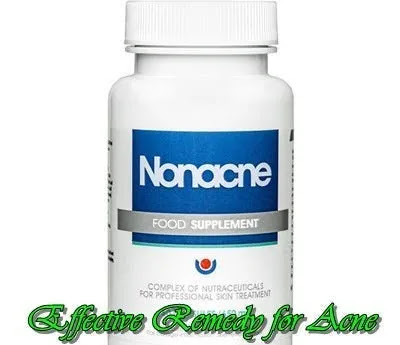Understanding and Treating Cystic Acne: Expert Insights
Discovering cystic acne, a severe form of acne characterized by painful, deep-seated nodules and cysts, requires specialized treatment and care. Here, dermatology experts Bob Wilson, Stephanie S. Gardner, and Debra Jalima shed light on the causes, symptoms, treatment options, and skincare practices for managing cystic acne effectively.
What is Cystic Acne?
Cystic acne manifests as deep, fluid-filled cysts and nodules beneath the skin’s surface, often leading to inflammation, pain, and potential scarring. Understanding its symptoms and causes is crucial for effective management.
Symptoms of Cystic Acne:
- Painful subcutaneous rashes with fluid-filled pimples
- Inflammation and redness of the surrounding skin
- Variable sizes of pimples, ranging from 1–2 mm to 1–2 cm in diameter
- Predominantly appearing on the face, neck, chest, and back
Causes and Triggers of Cystic Acne
Cystic acne arises from various factors, including hormonal imbalances, genetic predispositions, and lifestyle choices. Identifying the underlying causes can guide personalized treatment approaches.
Common Causes of Cystic Acne:
- Hormonal fluctuations during puberty, pregnancy, or menopause
- Increased androgen hormone levels leading to sebaceous gland overactivity
- Polycystic ovary syndrome (PCOS) and endometriosis
- Medications, such as hormonal contraceptives and antidepressants
- Comedogenic cosmetics and improper skincare habits
- Risk factors like obesity, smoking, and poor dietary choices
Treatment Strategies for Cystic Acne
Combatting cystic acne involves targeting underlying pathogenic processes, including sebum overproduction, bacterial proliferation, and follicular keratinization. Dermatological interventions and skincare practices play pivotal roles in managing the condition effectively.
Medical Treatment Options:
- Antibiotics to address bacterial infection and inflammation
- Hormonal medications to regulate androgen levels
- Topical retinoids (vitamin A derivatives) for pore clearance and antibacterial effects
- Drainage, injection, or surgical excision of cysts for severe cases
Skincare Practices for Cystic Acne Management
Implementing gentle skincare routines and avoiding aggravating factors are essential for alleviating symptoms and preventing flare-ups.
Skincare Tips:
- Cleanse the face twice daily with mild, non-abrasive cleansers
- Avoid harsh scrubs and exfoliants to prevent skin irritation
- Apply sunscreen regularly to protect the skin from sun damage
- Use non-comedogenic moisturizers and cosmetics to avoid pore blockage
- Refrain from squeezing or picking at cystic acne lesions to prevent scarring
Dietary and Lifestyle Considerations
Maintaining a balanced diet and healthy lifestyle habits can complement medical treatment and promote skin health.
Dietary and Lifestyle Tips:
- Consume a balanced diet rich in fruits, vegetables, and whole grains
- Limit intake of sugary, fatty foods that may exacerbate acne
- Manage stress through adequate sleep, exercise, and relaxation techniques
Conclusion
Cystic acne presents unique challenges and requires a multifaceted approach encompassing medical intervention, skincare practices, and lifestyle modifications. Consulting with a dermatologist is paramount for personalized treatment recommendations tailored to individual needs. Remember, effective management of cystic acne is achievable with patience, consistency, and professional guidance.
Revamin Acne Cream is an advanced cream for imperfections. This cosmetic product contains nourishing ingredients that prevent breakouts and discourage the formation of new pustules. The cream’s formula deeply penetrates the skin, leaving it healthy, elastic, and smooth. Revamin Acne Cream is designed for people with problematic skin. It targets all types of acne, regardless of the cause. Regular use of the cream helps reduce breakouts and imperfections, limits excess sebum production, and alleviates redness and inflammatory conditions.Revamin Acne Cream is in demand among those who want to maintain healthy skin.
Visit the official website of the product.
Zinamax is a bioactive supplement that supports acne elimination. The product is intended for those who want to get rid of pustules, inflammation, and improve the condition of their skin. The effects of the tablets can be observed within a month of use. The product possesses anti-inflammatory and antibacterial properties. It deeply moisturizes the skin and promotes wound healing. Additionally, it reduces sebum secretion, leaving the skin in excellent condition. Zinamax was created based on plant extracts, vitamins, minerals, and other nutrients known for their action on acne. The main component of the product is lactoferrin, a protein that exhibits a range of properties, helping to destroy bacteria, viruses, fungi, and parasites.
Visit the official website of the product.
Nonacne is a product for acne-prone skin. Its ingredients help to get rid of acne and prevent their appearance. Regular use of this product makes the skin beautiful and smooth. The product is highly popular among teenagers and adults who have also faced the problem of acne.





